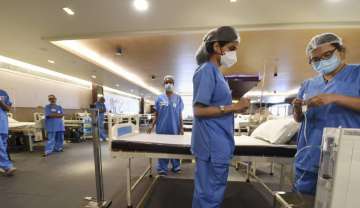A genetic research pilot study on cystic fibrosis (CF) conducted by a leading private facility here has found "unexpected results", hospital authorities said. CF is considered to be very rare in Indian population. This study not only shows prevalence of CF but also to a high extent, they said. "The genetic research pilot study which was done by the Institute of Medical Genetics & Genomics at Sir Ganga Ram Hospital and has been published in BMC Medical Genetics, London has revealed unexpected results," the hospital said in a statement.
For the first time a high carrier frequency of 4.5 per cent (9 per 200) for Cystic Fibrosis (CF) has been revealed, it claimed.
Carrier frequency of 9 per 200 found in the study has an expected disease prevalence rate of 1:2000, the statement said.
"The study also showed a high carrier frequency for genetic forms of Deafness and Pompe disease among a cohort of 200 subjects from north India.
The study was done in partnership with Medgenome Labs, Bangalore," it added.
"Carrier status does not mean disease. If both husband and wife are carriers, then there is a 25 per cent chance of their children suffering from the disease. Based on this carrier rate the prevalence of cystic fibrosis disease would be as high as one in 2,000 new borns. Cystic Fibrosis (CF) was considered to be very rare in Indian subcontinent, but the current study shows its frequency to be higher than the west," the study claimed.
According to I C Verma, Senior Consultant & Advisor, Institute of Medical Genetics & Genomics, at the hospital, “Based on this study, cystic fibrosis should be added to beta-thalassemia and spinal muscular disorders that should be screened in all pregnant women to prevent these diseases. It should also be added to the list of disorders for which newborn screening is being done. Sir Ganga Ram Hospital is planning to add CF to the existing newborn screening programme”.
Cystic Fibrosis is an inherited life-threatening disorder that damages the lungs and digestive system. It affects the cells that produce mucus, sweat and digestive juices. It causes these fluids to become thick and sticky, the statement said.
Sunita Bijarnia-Mahay, author and Senior Consultant, Institute of Medical Genetics & Genomics, claimed, “Our study also found that the disease-causing pathogenic variants in the Indian population were different than in the West".
Also Read | In a first, Telangana doctors perform double lung transplant on COVID-19 patient
Latest India News
